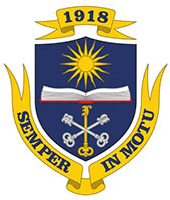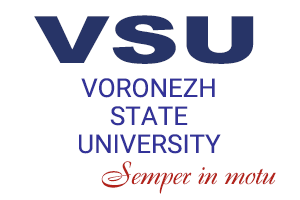“The annual Slavic Readings in honour of Saints Cyril and Methodius were held at the Faculty of Philology. Students from the Faculty of Philology, the Balkan Language Centre, and guests of the faculty (the Military Training Centre of VSU and the Voronezh children’s creativity centre “Eureka”) prepared performances in Slavic languages: songs in Polish, Czech, Bulgarian, Ukrainian, theatrical productions in Old Slavonic and Southern Russian dialect, and poems in Macedonian and Serbian. VSU graduates from Slavic countries sent over their video greetings. Associate Professor Zhanna Grachiova, Dean of the Faculty of Philology, Professor Gennady Kovalev, Head of the Department of Slavic Philology, addressed the audience with welcoming speeches. The folk music group “Terem” under the leadership of Galina Khristova, associate professor at the Department of Ethnomusicology of Voronezh Institute of Arts, opened the Readings with ancient songs of the Voronezh Governate…”
I am writing this news story and I understand that it comes out dry and unemotional. Cyril and Methodius, whose portraits imitating Russian icons, hang on the walls of our department are watching me. They are vigilant and sombre against a golden background, as if they are standing with their backs to the sunset. “Slavic brothers”, that’s the name that was given to our department at the Faculty of Philology.
The first Slavic Readings were held here many years ago, they were started by Valentina Sobinnikova, a dialectologist and a talented lecturer. I never met her, only read her books and saw her portrait: an elderly woman with a kind, lively, and slightly sad stare.
And this is exactly what the Readings were like this time: kind, with a shade of sadness, lively, and sincere.
Zhanna Grachiova said that culture is the foundation (and I wonder if it might be the only one that has remained?) that unites the Slavic peoples now. The normally soft voice of Gennady Kovalev, who is known for his straightforwardness, spoke more harshly about the dark forces that had divided the Slavs.
Each performance, song, a piece of prose, and poem had its own charm and flavour of the Slavic word. It reminds me of a thin glass figurine, multicoloured and fragile. I will tell you about the things I remembered the most.
...We sang along with “Terem” a sonorous song about rainy parting and sunny joy. And the Ukrainian song about a turtle dove which says farewell to its home sung by our graduate Vera Chetverkova was wrenching. And Vera herself looked like a little turtle dove.
Second year students presented a fun and daring performance. These were scenes from the soap opera “Wild Rose” in the Southern Russian dialect as it is spoken in the Voronezh villages.
The guys did not invent it themselves just for fun, the performance was based on a real record from a dialectological expedition: two elderly villagers told each other about events in their favourite show.
First year students acted out the parable of the prodigal son in Old Slavonic. Old Slavonic is an amazing language: no one has ever used it to communicate. Neither in Ancient Russia, nor before, nor after. It was a written language common to all Slavs: the foundation that united them. It was used to write books and for religious ceremonies.
The parable of the prodigal son is performed at the readings every year, and yet each time in a new way: literary or in a humorous way, in theatrical costumes or with soft toys as a raree show. And students make this ancient written language sound.
Quiet and serious students from Turkmenistan who study at the Faculty of Philology recited poems by Russian poets about the Russian language: V.S. Shefner, A.A. Akhmatova, and I.A. Bunin.
Children from the creative centre danced wearing Serbian folk costumes, white and red, reminding flowers strewn around the room.
The distant Macedonian Ohrid echoed with poems and video greetings. Not all words could be heard but they were kind and solemnly sincere.
The presenter Dasha Galtsova, a young lecturer, gave an academic but easily understandable talk about the Western Slavs: they have a Latin alphabet and their culture is close to European, but they also honour Cyril and Methodius.
Third year students sang in Czech. This language sounds like a wooden xylophone: a neat pitter-patter of consonant sounds.
Guys from the Military Training Centre also sang in Polish. They sang harmoniously and heartily about a simple blue headscarf. We sang along in Russian.
We said goodbye. We returned to our routine.
And Cyril and Methodius against the golden background have been watching us all along. And their stare inspires hope.
Elvira Parkhots,
Laboratory Assistant at Department of Slavic Philology
At the Faculty of Philology
Photo: Vladimir Lyniov,
a student from the Faculty of Journalism




















